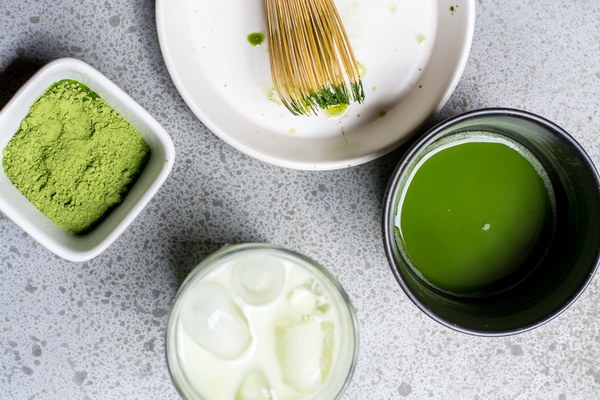Revamp Your Wellbeing A Comprehensive Guide to Womens Health and Wellness
In an ever-paced world, prioritizing women's health and wellness has become more crucial than ever. From managing stress to maintaining a balanced diet, this article aims to provide a comprehensive guide to help you revamp your well-being. Let's delve into the essential aspects of women's health and wellness.
1. Understanding the Unique Health Needs of Women
Women's health encompasses a wide array of concerns, including reproductive health, hormonal fluctuations, and mental health. It's vital to understand these unique needs to ensure optimal health and well-being.
1.1 Reproductive Health
Reproductive health is a significant aspect of women's health. This includes the management of menstrual cycles, fertility, pregnancy, and menopause. Regular check-ups with a gynecologist, birth control, and prenatal care are essential for maintaining reproductive health.
1.2 Hormonal Fluctuations
Hormonal fluctuations play a significant role in women's health. These fluctuations can lead to mood swings, fatigue, and other symptoms. Understanding your hormonal cycle and managing it effectively can help alleviate these symptoms.
1.3 Mental Health
Mental health is equally important for women's well-being. Conditions like anxiety, depression, and postpartum depression are more prevalent in women. Seeking professional help and practicing stress-reducing techniques can improve mental health.
2. Nutrition and Diet
A balanced diet is crucial for maintaining good health. Here are some essential nutrients and dietary tips for women:
2.1 Iron
Iron is essential for the production of hemoglobin, which carries oxygen in the blood. Women require more iron than men due to menstrual blood loss. Incorporate iron-rich foods like lean meat, fish, beans, and fortified cereals into your diet.
2.2 Calcium
Calcium is essential for maintaining strong bones and teeth. Women are more prone to osteoporosis, so it's crucial to consume enough calcium. Good sources of calcium include dairy products, leafy greens, and fortified foods.
2.3 Omega-3 Fatty Acids
Omega-3 fatty acids have anti-inflammatory properties and can improve heart health. Fish, flaxseeds, and walnuts are great sources of omega-3s.
2.4 Hydration
Staying hydrated is vital for overall health. Aim to drink at least 8 glasses of water daily, and adjust your intake based on your activity level and climate.
3. Exercise and Physical Activity
Regular exercise is essential for maintaining a healthy weight, reducing stress, and improving mental health. Here are some exercise recommendations for women:
3.1 Cardiovascular Exercise
Cardiovascular exercise, such as running, cycling, or swimming, helps improve heart health and increase energy levels. Aim for at least 150 minutes of moderate-intensity cardio per week.
3.2 Strength Training

Strength training is crucial for maintaining muscle mass, improving bone density, and enhancing metabolism. Incorporate strength training exercises like weightlifting or resistance band workouts into your routine at least two days a week.
3.3 Flexibility and Balance
Flexibility and balance exercises, such as yoga or Pilates, can improve posture, reduce stress, and prevent injuries. Include these exercises in your weekly routine.
4. Sleep and Rest
Adequate sleep is essential for overall health and well-being. Here are some tips to improve your sleep quality:
4.1 Establish a Sleep Routine
Go to bed and wake up at the same time each day to establish a consistent sleep routine.
4.2 Create a Relaxing Environment
Make sure your bedroom is conducive to sleep by keeping it dark, quiet, and at a comfortable temperature.
4.3 Limit Screen Time
Reduce exposure to screens an hour before bedtime to improve sleep quality.
5. Mindfulness and Stress Management
Mindfulness and stress management techniques can help you maintain a healthy mental state. Here are some practices to consider:
5.1 Meditation
Meditation can help you manage stress, reduce anxiety, and improve focus. Dedicate a few minutes each day to practice meditation.
5.2 Breathing Exercises
Deep breathing exercises can help you calm your mind and reduce stress. Try techniques like the 4-7-8 method or alternate nostril breathing.
5.3 Journaling
Journaling can help you express emotions, reflect on your day, and reduce stress. Write a few sentences each day to improve your mental well-being.
In conclusion, women's health and wellness encompass various aspects, from nutrition and exercise to mental health and stress management. By incorporating these tips into your daily routine, you can revamp your well-being and live a healthier, happier life. Remember, taking care of yourself is essential for taking care of others.









